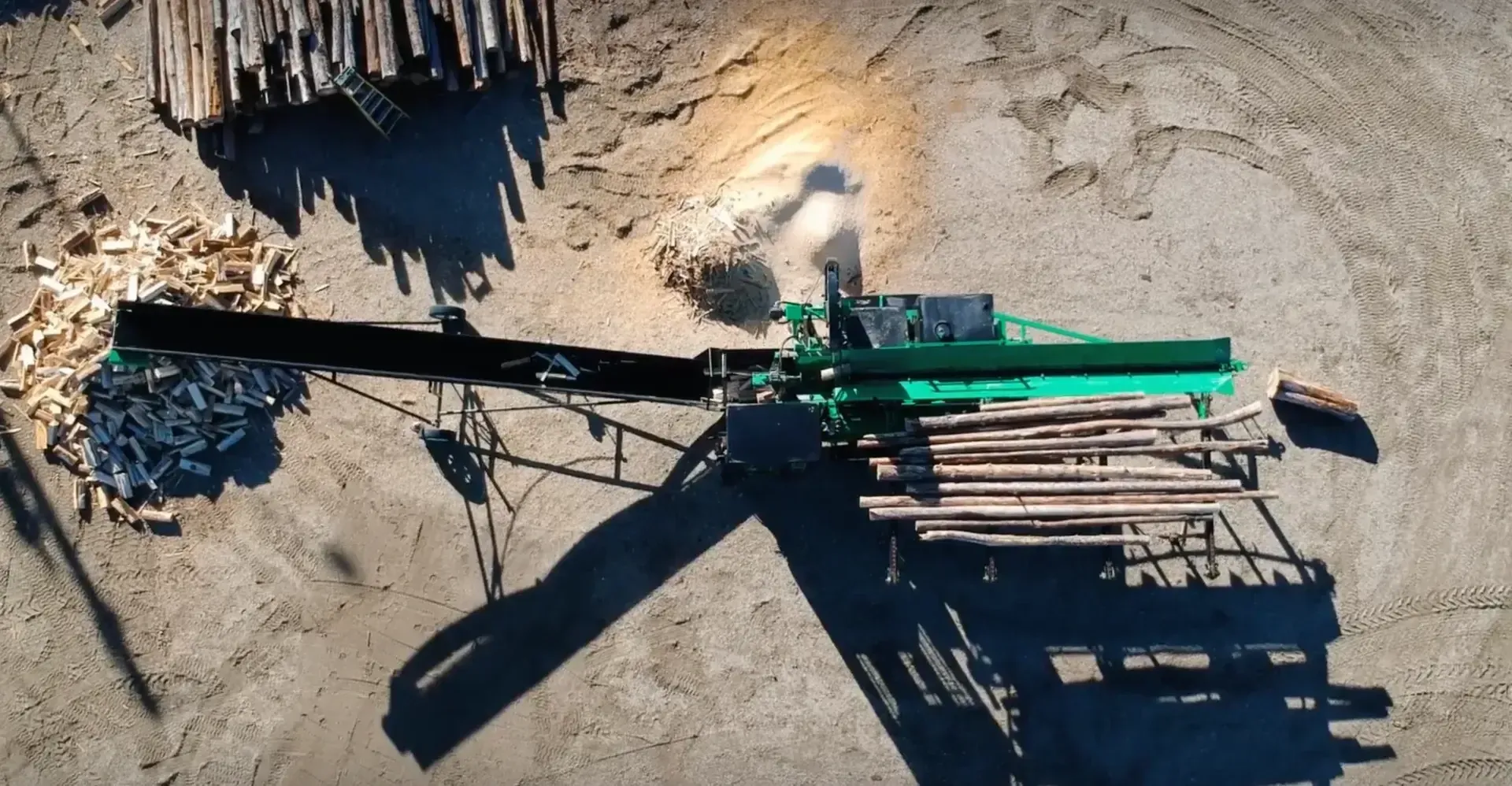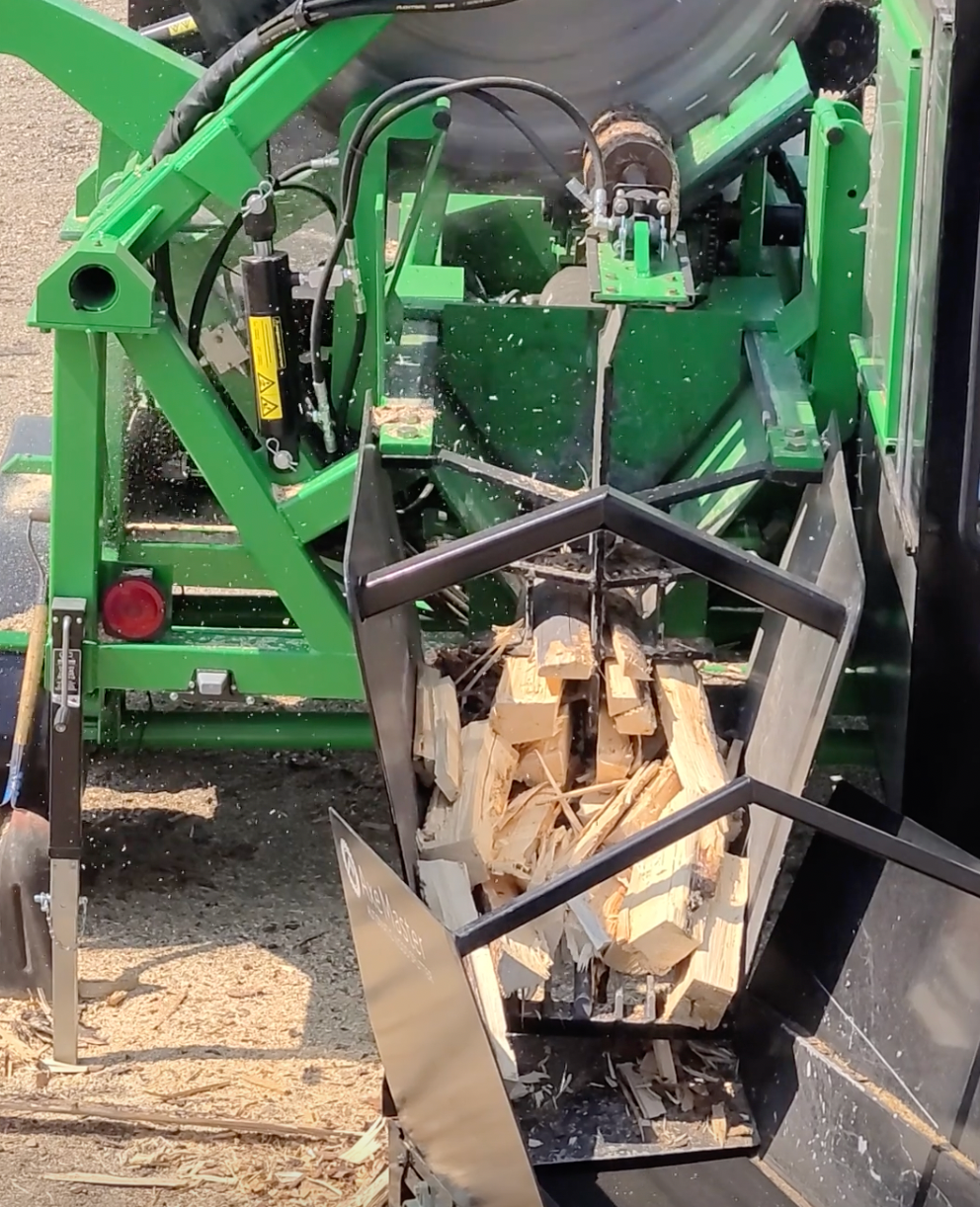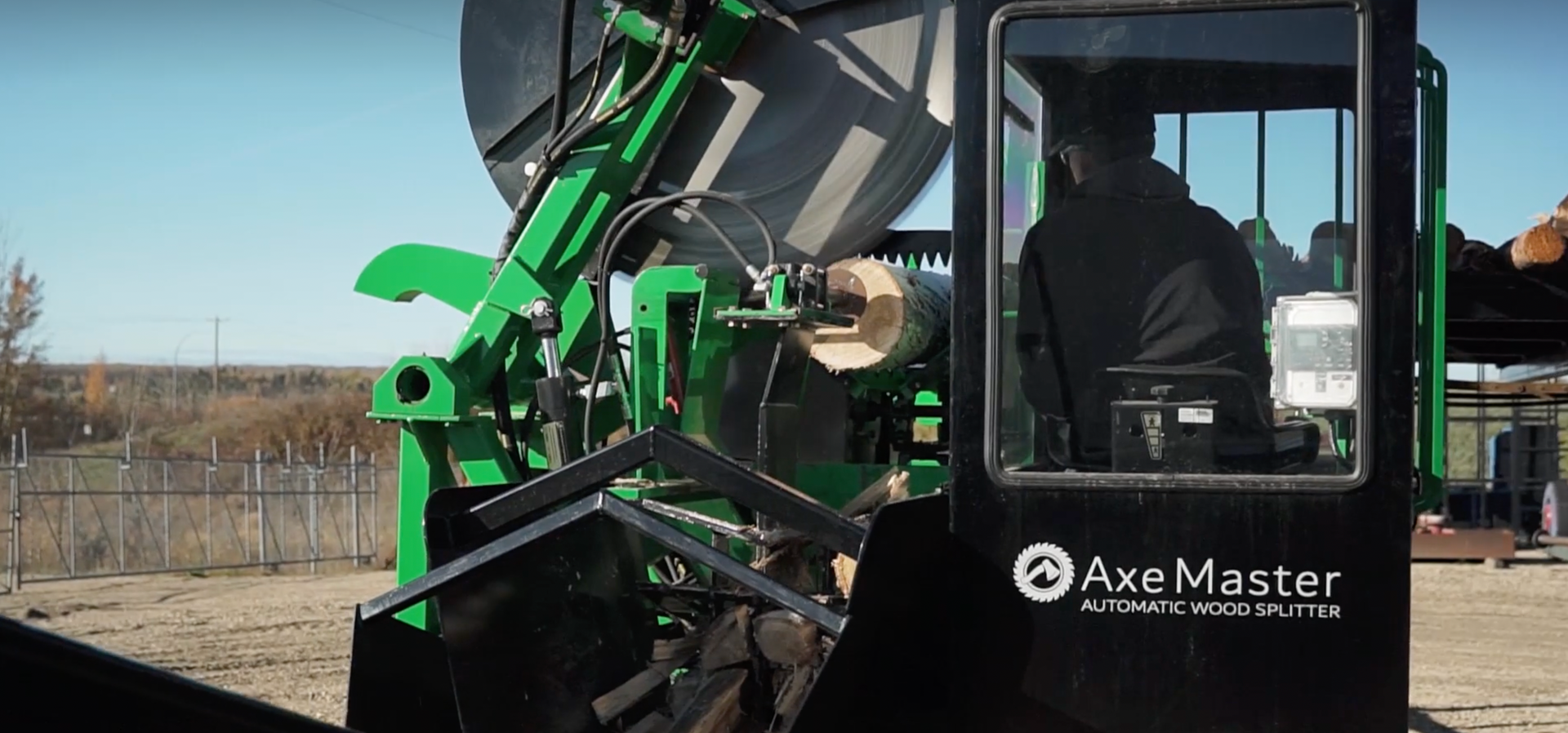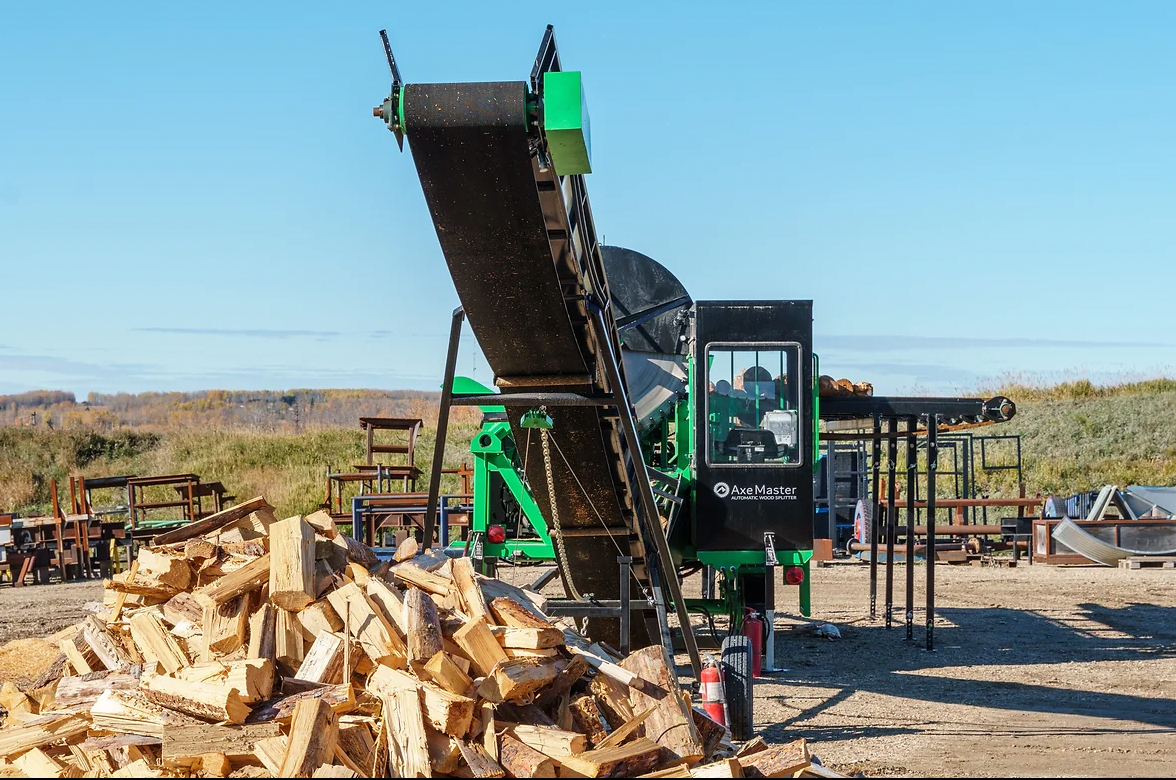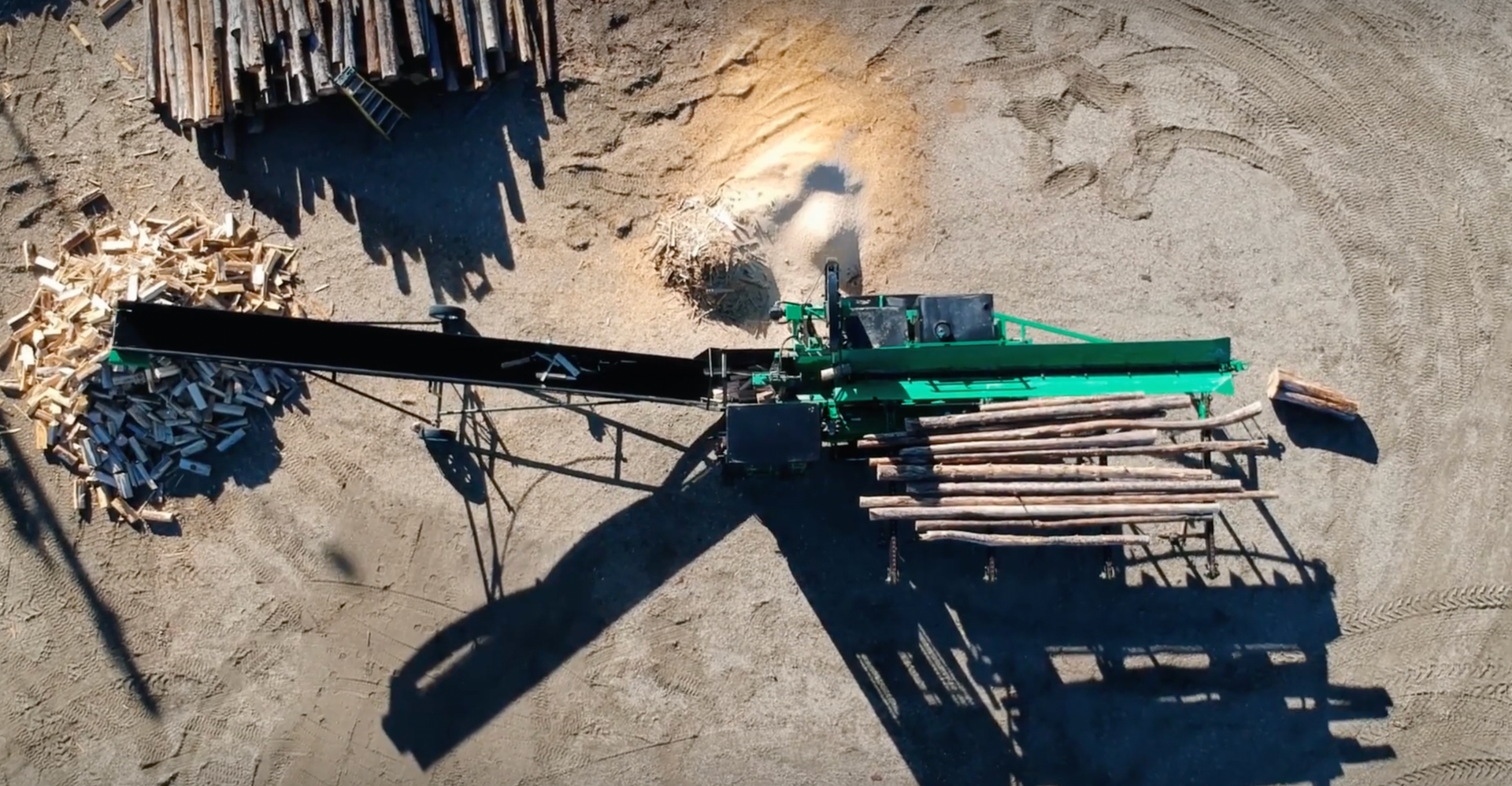Choosing the Right Firewood Processor
As demand for firewood continues to grow across the country - for heating, forestry, and agricultural use - the tools used to meet that demand have evolved dramatically. Gone are the days of labour-intensive log splitting with axes or underpowered consumer machines. Today’s forestry and timber professionals understand the value of efficiency, output, and precision. And that starts with choosing the right
firewood processor.
At
Axemaster, we specialise in high-performance commercial-grade machines built for serious work. But with so many models, features, and configurations available, how do you know which one is right for your operation?
Let’s explore what makes a quality firewood processor, what to consider when buying one, and why investing in the right machine today sets your business up for long-term profitability.
What Is a Firewood Processor, and Why Does It Matter?
A firewood processor is a machine designed to automate the cutting and splitting of logs into firewood. It combines a chainsaw or circular saw, log deck, hydraulic splitter, and conveyor into one streamlined unit. This allows a single operator to process a significant volume of timber in a fraction of the time manual labour would take.
The benefit of this is not just productivity - it’s consistency. With a proper machine, every piece of firewood is cut and split to a uniform size, increasing both burn quality and saleability. Whether you run a commercial firewood business or supply heating wood for contracts, a reliable processor makes all the difference.
Consumer vs. Commercial: A Critical Distinction
Many first-time buyers make the mistake of choosing a processor based on upfront price alone. While consumer-grade machines may seem appealing at first glance, they often lack the capacity, durability, and speed needed for professional output.
A commercial firewood processor is built with reinforced components, a larger splitting force, and continuous operation in mind. These machines can handle tough wood types, varied log diameters, and hours of daily use, often with minimal downtime. For high-volume work, this isn’t a luxury - it’s a requirement.
Axemaster’s equipment is built for this level of demand, offering machines that maintain output even under pressure. Other trusted manufacturers like RJ Machineworks also provide powerful options for professional-grade use, showcasing how reliable engineering transforms daily workflow.
Different Types of Firewood Processors
When exploring your options, it’s important to understand the types of machines available and how they align with your needs. One major distinction lies between hydraulic and PTO-driven machines.
A hydraulic firewood processor relies on its own power unit to drive all functions, making it ideal for mobile use or operations that don’t already have a tractor or skid steer. On the other hand, a PTO firewood processor is powered by the engine of an external machine, usually a tractor, which can be a cost-effective solution for those with the right setup.
Automated processors offer higher throughput but require a greater initial investment, while more manual machines give you flexibility with lower operating costs. The best fit depends on your timber type, site logistics, and staffing.
What Features Really Matter?
If you’re processing logs all day, the little details add up. That’s why serious buyers look at features like log diameter capacity, cut length range, splitting force, and the speed of the conveyor system.
Durability is just as important. A bent wedge or an underpowered ram could halt your day. Axemaster’s machines are designed to reduce downtime with replaceable wear parts, easily accessible service points, and frames reinforced for impact.
Safety should also be a major consideration. Our processors include guarding, emergency shut-offs, and ergonomic controls, helping keep your team safe while improving workflow.
Matching the Machine to Your Operation
Let’s take two examples. A mid-size firewood supplier in Manitoba may need a mobile processor with enough capacity to produce 3-4 cords a day, working with mixed hardwoods and limited staff. In this case, a self-powered machine with moderate cycle speed and simple setup may be the best fit.
By contrast, a firewood delivery company in Thunder Bay running year-round needs a high-output unit capable of full-day operation. Here, a fully automated log deck and splitter with 20+ inch log diameter capacity will save time and labour, even with a higher initial cost.
The right match isn’t always the biggest or most powerful - it’s the one that aligns with your wood type, your customers, and your workflow.
Real Investment, Real Returns
Spending more on a well-built firewood processor isn’t an expense - it’s a return on investment. The difference between a machine that runs five cords per day and one that runs fifteen could double or triple your revenue.
But it’s not just about output. Downtime costs money. Equipment failures during peak season can disrupt schedules and impact your reputation. That’s why professional-grade equipment matters.
At Axemaster, we’ve seen clients reduce staffing costs, improve delivery times, and secure repeat contracts simply by upgrading their processing capability.
Why Forestry Professionals Choose Axemaster
We’re more than just a supplier. We work with each client to understand their needs, recommend the right equipment, and offer ongoing support that keeps them running.
Our team has years of field experience and understands what makes a machine dependable, not just in theory, but in the real world. Whether you need advice on workflow setup, product specs, or maintenance schedules, we’re here to help.
Our commercial-grade machines are built tough, tested in harsh conditions, and trusted by timber operators across the region.
Commitment to Sustainability
Responsible forestry is about more than processing logs. It’s about ensuring that equipment, suppliers, and practices all contribute to a sustainable system.
We stand behind the importance of industry accountability and encourage operators to align with the Natural Resources Canada Sustainability Strategy, supporting the long-term health of our forests and natural resources.
Choosing the right processor means fewer emissions, less waste, and more efficient land use - all of which contribute to better outcomes for the environment and your bottom line.
Whether you’re launching a new venture or scaling an existing one, the right firewood processor can change your business. Don’t settle for guesswork or generic machines - trust a team that understands timber, understands output, and understands you.
Contact Axemaster today for expert advice, a custom quote, or a walk-through of your needs. We’re here to make firewood processing simpler, smarter, and more profitable.

